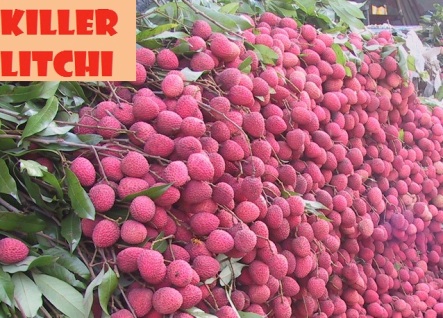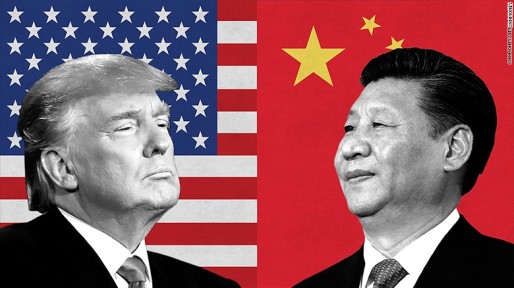THE HINDU – CURRENT NOTE 11 February
 Waking up to the role of toxins in causing litchi mystery disease
Waking up to the role of toxins in causing litchi mystery disease

- Evidence has emerged that as late as March 2014, researchers from Delhi’s National Centre for Disease Control, India (NCDC) and Centres for Disease Control and Prevention, Atlanta (CDC) were in the dark about the possible role of a toxin present in litchi in causing illness in children in Muzaffarpur, Bihar.
- Scientists from the NCDC and the CDC had published a paper on January 30 in the journal Lancet Global Health where they state that consumption of litchi, which has the methylenecyclopropylglycine (MCPG) toxin, and skipping the evening meal, result in very low blood glucose levels (less than 70 mg/dL) and acute encephalopathy and causes death in many cases.
Early papers:
- It has now come to light that an article in NCDC’s July-September 2013 newsletter and a March 2014 presentation (Summary of 2013 investigation on acute encephalopathy outbreak) made on behalf of the NCDC-CDC surveillance team about the litchi mystery disease do not make any mention of MCPG toxin present in litchi and its possible role in causing illness.
- T. Jacob John, a virologist who was earlier attached to the Christian Medical College (CMC), Vellore, and his team, published a paper on May 10 in the journal Current Science hypothesising that MCPG in litchi may be causing the illness, an article in the July-September 2014 newsletter cites the possible role of MCPG.
- The 2014 article says: “One specific hypothesis generated from the 2013 findings included the potential presence of a toxin (MCPG) with hypoglycaemic activity that is found in the litchi seed.” They also cite MCPG’s “potential” to cause acute hypoglycaemia and encephalopathy in animals, akin to ackee poisoning seen in the Caribbean.
- Incidentally,all the details about MCPG toxin mentioned by the Lancet authors in the 2014 newsletter article have already been stated in the May 2014 paper by Dr. John and Dr. Mukul Das from the Indian Institute of Toxicology Research, Lucknow.
 India in talks with U.S. on H-1B issue, says Prasad
India in talks with U.S. on H-1B issue, says Prasad

- The government is in talks with the Trump administration on the H-1B visa issue and is hopeful of finding a solution soon said the I.T Minister Ravi Shankar Prasad.
- Indian IT industry has raised some concerns, govt. is coordinating with the Ministry of External Affairs, which, in turn, is in touch with their counterpart in the U.S. on the visa issue.
- Earlier in the meeting, some people mentioned the current issue such as increase in visa fees etc, while others flagged the general trend that there is increasing protectionism and what should be India’s strategic response in such a scenario.
 China buoyant after Trump’s U-turn
China buoyant after Trump’s U-turn

- The endorsement by U.S. President Donald Trump of the one-China policy during a telephone conversation with his Chinese counterpart Xi Jinping has cleared the air for a substantive dialogue between Washington and Beijing that is likely to re-rail ties between the world’s two largest economies.
- China had been angered by earlier remarks by Mr. Trump, questioning Beijing’s sovereignty over Taiwan under the one-China principle.
- “By mentioning the need for a constructive relationship with China and upholding the one-China principle, which is fundamental to China, President Trump has shown that we can now move to discuss other issues concerning the two countries such as currency and trade,” Wang Yiwei, professor of international studies at Renmin University, told.
- A statement by the spokesman for Taiwan President Tsai Ing-wen stated that it was in Taiwan’s interest to maintain good relations with both the U.S. and China.
 A shot in the arm for defence acquisition
A shot in the arm for defence acquisition

- The government plans to set up a Defence Procurement Organisation (DPO) to integrate and streamline the long and arduous process of defence acquisitions. The DPO will be a vertical under the Defence Ministry and the philosophy is to integrate the processes.
- A government appointed committee, headed by former Director of Indian Institute of Management (IIM) Lucknow, Dr. Pritam Singh, has submitted a report on the modalities of setting up the DPO to Defence Minister Manohar Parrikar on Thursday.
- The report has just been submitted and is being studied. The time frame is about 2-3 years for the structures to fall in place
- The Defence Procurement Process, which applies to all defence capital procurements, has been modified several times to bring in transparency and speed up acquisitions but it continues to be lengthy and complicated.
- Observing that the main motive of the procurement process should be to create an engine of growth. In the present system the focus on development is low key while production process is mostly with the Defence Public Sector Undertakings (DPSU). There is no match between the capabilities of the two.
Deals Approvals:
- To shorten the procurement cycle, the Cabinet Committee on Security (CCS), chaired by the Prime Minister, has increased the financial powers of the Defence Minister.
- In the past, the Defence Minister was entitled to clear deals up to ₨.500 crore, which has now gone up to ₨.2,000 crore.
- Jointly, the Finance Minister, the Defence Minister can approve projects up to ₨. 3,000 crore, up from the earlier ₨. 1,000 crore.
- The Defence Secretary too has now been given financial powers upto ₨. 500 crore to clear deals.
- About 70% of the deals by number are below ₹3,000 crore. Now only deals of ₹3,000 crore and above would go to the CCS for approval.
 Centre says ‘no’ to news broadcast via FM
Centre says ‘no’ to news broadcast via FM

- Giving news broadcast rights to private FM radio operators and community radio stations run by NGOs will be an open invitation for anti-national and radical elements located “within the country” to propagate their vested interests and agenda to the masses, the government told the Supreme Court.
- An affidavit filed by the Centre in the Supreme Court favoured news on radio to continue to be the “exclusive preserve” of the national broadcaster Prasar Bharati’s All India Radio (AIR).
- Handing over the rights to private FM operators and community radio stations run by NGOs and “other small organisations” will pose a national security risk, the government said.
- There are 281 private FM channels in 84 cities. Though the government had permitted 519 organisations to operate community radio stations in India, only 201 organisations have actually operationalised them.
- “Unfettered freedom to community radio and private FM radio operators in putting out news bulletins and/ or current affairs programmes may be detrimental to national interest and it may be prudent to allow community radio operators to only broadcast AIR’s news,” the government submitted.
- The government was responding to the Supreme Court on the prohibition on FM radio stations and community radios from airing their own news and current affairs bulletins.
 Govt. sets up inter-departmental task force to crack down on benami firms
Govt. sets up inter-departmental task force to crack down on benami firms

- A task force comprising members of various regulatory Ministries and enforcement agencies has been set up on Prime Minister Narendra Modi’s directions for a major crackdown on shell companies, which are used for large-scale money laundering and tax evasion.
- About 560 beneficiaries, who laundered ₹3,900 crore, and 54 chartered accountants, who were involved in the racket, have already been identified. The task force has been constituted under the co-chairmanship of the Revenue Secretary and the Corporate Affairs Secretary to monitor the actions taken by various agencies.
- The agencies will invoke the stringent Benami Transactions (Prohibition) Amendment Act against the shell companies, freeze their accounts and strike off the names of dormant companies.
- Disciplinary action will be initiated against professionals abetting the companies and entry operators, who are used to launder unaccounted- for incomes into the banking system for projecting them as white money.
- There are about 15 lakh registered companies in India and only 6 lakh of them file their annual returns, raising suspicion that a large number of these companies are indulging in financial irregularities.
- The Serious Fraud Investigation Office filed criminal prosecutions for cheating the national exchequer after a probe against the entry operators running a group of 49 shell companies and other proprietorship concerns.
 SC extends ban on firecracker sale
SC extends ban on firecracker sale

- The Supreme Court on Friday extended its November 2016 ban on the sale and stockpiling of firecrackers in Delhi-NCR despite pleas made by traders to modify the order. A Bench of Justices Madan B. Lokur and P.C. Pant further directed the Central.
- Pollution Control Board (CPCB) to prepare an inventory of existing firecrackers with traders and suggest measures for their disposal.
- The Bench refused a suggestion by traders to allow them to sell their existing stock outside Delhi-NCR. “You cannot be allowed to sell or dispose of the stock in Bombay or elsewhere and create pollution,” the Bench said.
- Having once compared bursting of firecrackers as the “burning of money”, the Supreme Court had held upheld the government’s authority to intervene in people’s right to celebrate weddings and festivals if the cause was urgent and entailed the larger public good.
 Children suffering:
Children suffering:- The ban was imposed on the basis of a petition filed last year by three Delhi children immediately after Diwali.
- The Supreme Court was told how 40% children in Delhi suffered from respiratory diseases.
- They said children suffer the most and their battle to breathe gets tougher with the poisonous tang of Diwali firecrackers remaining in the air even days after the festivities are over.
 Leopards caught in Sariska to be kept under observation
Leopards caught in Sariska to be kept under observation

- Two leopards caught by the forest authorities in the Sariska Tiger Reserve situated in the Alwar district of Rajasthan, following their attacks on the villagers residing in the peripheral areas of the national park, will be kept under observation in the Jaipur Zoo before they are released back into the wild.
- Leopards used to roam freely in the core area of the Sariska Tiger Reserve till a few years ago, when tigers had become extinct.
- After the re-introduction of tigers by airlifting them, mainly from the Ranthambhore National Park, leopards were deterred from their free movement and they gradually retreated to the peripheral areas of the park.
